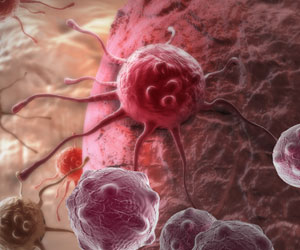Breast cancer imaging can now be improved using a new deep learning algorithm (known as Z-Net) as per a study at the Beijing University of Technology and the University of Birmingham.
“The near infrared spectral tomography (NIRST) and MRI imaging platform we developed has shown promise, but the time and effort involved in image reconstruction has prevented it from being translated into the day-to-day clinical workflow. Thus, we designed a deep-learning algorithm that incorporates anatomical image data from MRI to guide NIRST image formation without requiring complex modeling of light propagation in tissue,” says Keith Paulsen, who led the research team from Dartmouth College.
‘New image reconstruction approach (through a deep learning algorithm known as Z-Net) now helps contribute to better breast cancer detection by allowing breast cancer imaging to be recovered in real-time.’
The study states that the new algorithm can distinguish between malignant and benign tumors using MRI-guided NIRST imaging data from patient breast exams.
“The Z-Net algorithm reduces the time needed to generate a new image to a few seconds. Moreover, the machine learning network we developed can be trained with data generated by computer simulations rather than needing images from actual patient exams, which take a long time to collect and process into training information,” says Jinchao Feng, the study’s lead author.
The team is now set to adapt the new image reconstruction method to work with 3D data and plan to test it in a larger clinical trial shortly.
Source: Medindia



